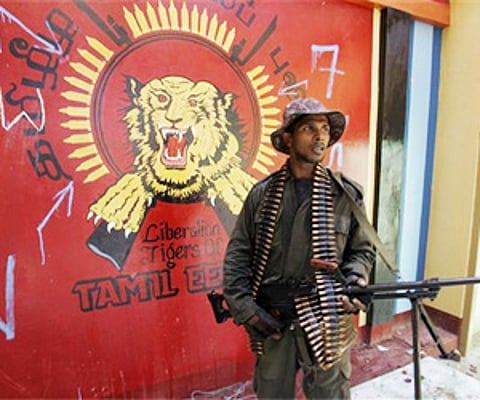

NEW DELHI: The Centre on Tuesday extended for five years the ban on terror group Liberation Tigers of Tamil Eelam (LTTE), saying it continued to be a “grave threat” to the country.
In a notification, the Ministry of Home Affairs (MHA) said that the LTTE’s objective of a separate homeland (Tamil Eelam) for all Tamils threatened the sovereignty and territorial integrity of India and its disruptive activities were prejudicial to the integrity and sovereignty of India.
The group continues to adopt a strong anti-India posture and also continues to pose a grave threat to the security of Indian nationals, said the notification, while banning the LTTE, the group that was behind the assassination of former prime minister Rajiv Gandhi.
The ban has been extended under the Unlawful Activities (Prevention) Act, 1967 and comes in the backdrop of the Easter blasts in Sri Lanka.
Though the LTTE had no connection with the Easter attacks, intelligence agencies had warned the government of LTTE undertaking propaganda activities, sources said.
Although the outfit is based in Sri Lanka, it has some supporters, sympathisers and agents in India.
The separatist Tamil chauvinist groups and pro-LTTE groups continue to foster a separatist tendency amongst the masses and enhance the support base for the LTTE in India, particularly in Tamil Nadu, the MHA said.
It will ultimately have a strong disintegrating influence over the territorial integrity of India, hence, the strong need continues to exist to control all such separatist activities by all possible lawful means, the notification said.
Even after its military defeat in May 2009 in Sri Lanka, the LTTE has been clandestinely working towards this cause by undertaking fundraising and propaganda activities, and the remnant LTTE leaders or cadres have also initiated efforts to regroup the scattered activists and resurrect the outfit locally and internationally, according to the notification.
The MHA said that cases were registered under the Unlawful Activities (Prevention) Act 1967, against LTTE, pro-LTTE elements and chauvinist groups between May 2014 and May 2019, besides cases under the provisions of Explosive Substances Act 1908 and Indian Penal Code, etc.